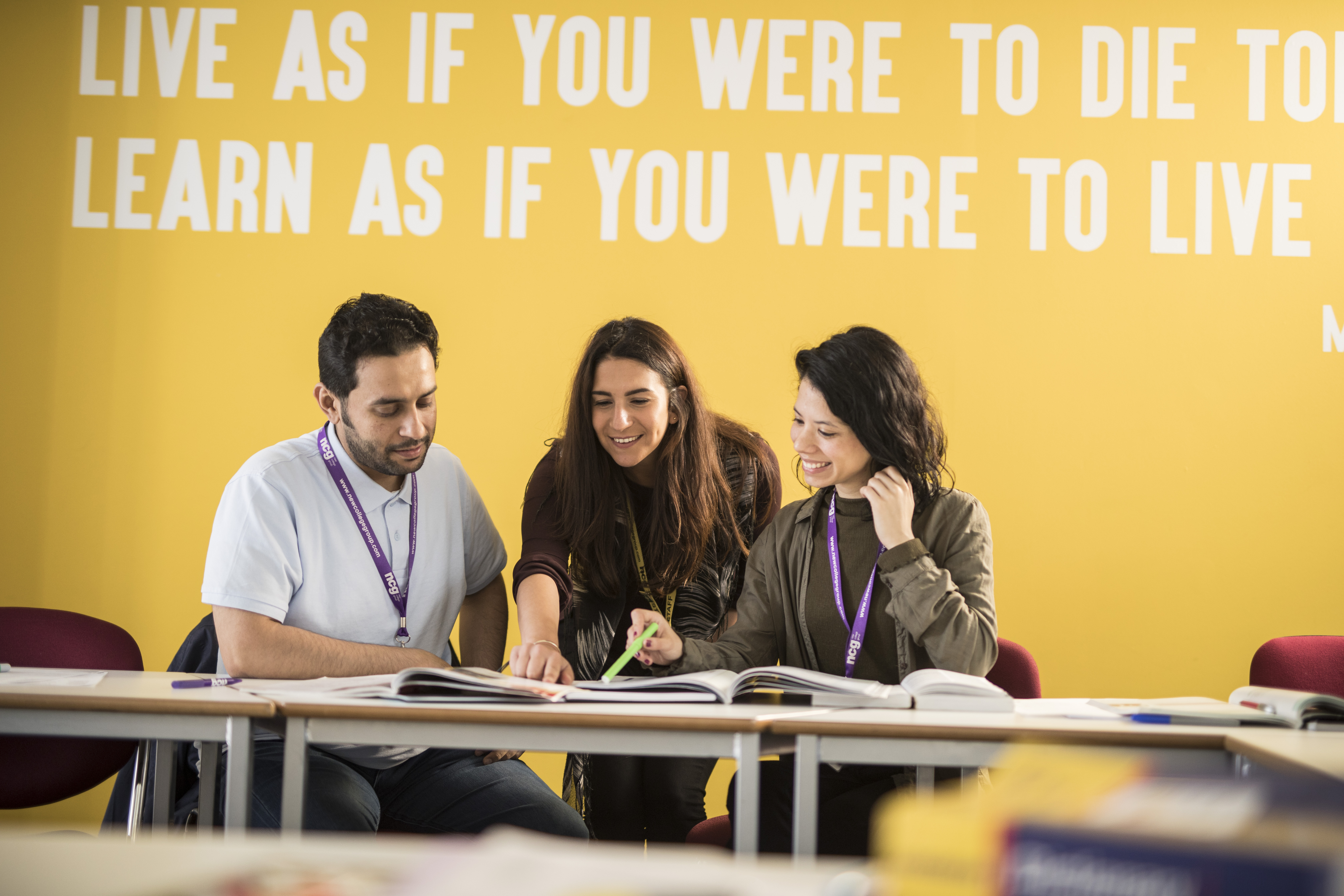
Posted on 19th February 2013 by New College Group
Study Skills for Top Students
Contributing to lessons, listening attentively, revising your notes… It all seems like good study practice so why do so many students start to feel a little overwhelmed and, well, lost during their course?
It’s perfectly normal for students to slightly lose sight of the outside world when deadlines are calling and exams are looming. While many students get into the bad habit of ‘cramming’ at the last minute, international students learning a new language often need more time to become accustomed to new ways of learning.
Often the pressure of studying leads students to actually be counter-productive in their independent learning. All too often students will take a relaxed approach at the beginning of their course and then panic and work non stop before an assignment hand in or exam!
Obviously too little, too late is a poor way to prepare for assessments, but we do understand that difficult topics can creep up on students and leave them feeling they can’t possibly have enough time to prepare.
Establishing good study skills early on in your course is, therefore, a really effective way to keep on top of your work. We’ve taken some tips from real students and universities all over the country to find what really helps students get results. Some of them we’re sure you’re familiar with, but other ways of learning may be different to how you study back home.
Prepare, Plan, Prioritise
Creating a revision timetable is an organisational method practised from secondary school to postgraduate level for its universal ability to really break down what can seem an impossible workload. Creating a timetable at the start of your course can help you allocate specific times to dedicate to each individual subject. This has multiple benefits of keeping you up to date with your work and allowing you to have a great social life outside your hard work!
A study plan can be tailored to each individual’s way of working, but creating a plan that allows you to read over and practice what you’ve learnt that day is a great way to keep the new information fresh. As you near assessment periods, creating a plan more focused on practising exam questions may be more effective for you.
Creating a plan is also a great way to tackle any difficult topics early on, identifying topics you struggle with can give you plenty of time to contact your tutor for extra help, teaching staff generally don’t appreciate being emailed 3 hours before your assignment is due in! Prioritising subjects you find more of a challenge is important for achieving all-around success on your course. It’s always very tempting to focus on topics you enjoy and find easy, but the trickier topics will benefit much more from your extra attention.
Your way of learning
Opening a textbook and sitting in a quiet library is a rather outdated view of studying now, there are so many ways you can engage with your subjects! While pouring over textbooks in silence may work well for you, for students who prefer a more interactive method of learning there are many other study options.
Some students find they take information in much better when it’s clearly displayed in a visual diagram. Mind maps containing concise information that indicate how they link to relevant arguments, facts and answers can be highly useful for visual learners.
Some students find that group study sessions are helpful as they allow different perspectives on topics from each member of the group. Studying with other people is also useful as you can review each other’s work, ask for help, or practice your conversational English. Studying with your peers is generally a more pleasant experience too as you can arrange regular short breaks together. Make sure you do concentrate though and stick to a schedule!
Practice, Practice and Practice Again
Writing essential notes on cue cards allows you to access your notes on the move and even when you find yourself getting completely fed up with a topic, reading, reading and reading some more can really help a subject stick in your head! Practising exam questions, especially essay questions can also work wonders, especially for students writing in their second language. Ask your tutor for examples of exam papers from previous years, or even make up your own questions based on topics which are likely to come up.
Preparing for your least favourite topic or an area you find difficult is one of the best ways to prepare yourself for any thorny questions you may be dreading!
Don’t forget, if you’re finding your course difficult, your tutors will be more than happy to help, our New College Manchester tutors are widely praised by our former students for their helpfulness. For more information about English courses and Graduate, courses get in touch with us and we’ll be happy to help.